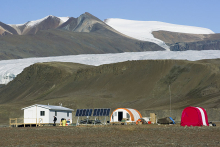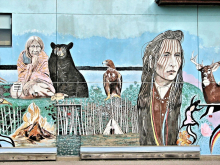Most members of the McGill community know Chris Buddle as a professor, an entomologist, a researcher, or a McGill administrator. But Buddle is a man of many more talents, which you can read all about in a new McGill Reporter article.
On May 22, he will launch A Portrait of Astonishing Nature, a remarkable collection of original poetry and watercolour paintings that pay loving tribute to the plants and animals around us.












